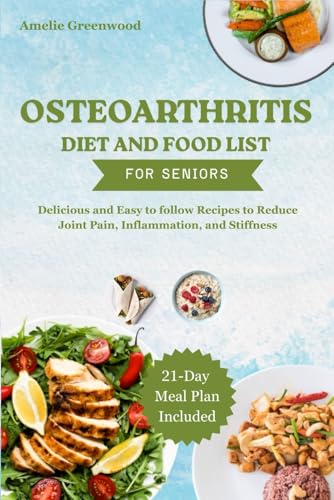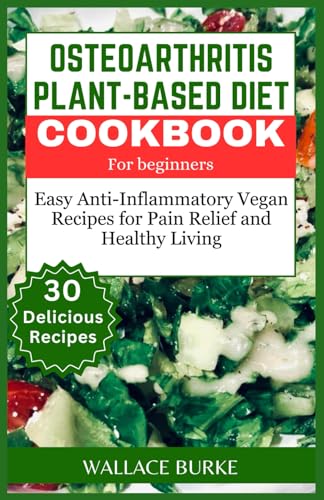We know that what we eat is what affects our health. So how can you relieve or possibly reverse the effects of degenerative osteoarthritis? Diet is still being researched for osteoarthritis as well as evaluated. These are the latest findings on diet for osteoarthritis.
Obesity increases your chance of getting osteoarthritis. Should you try and lose weight, you are also reducing your risk of getting osteoarthritis. Should your osteoarthritis be in a weight-bearing joint, such as, a hip or a knee, weight loss is going to improve your ability to heal post-joint surgery.
Vitamin C
Vitamins are crucial for wellbeing. Comprehension as to how vitamins combat osteoarthritis can enable an understanding of how diet for Osteoarthritis can be of help. Vitamin C is vital in terms of normal cartilage growth. These foods are great natural sources of vitamin C:
- Raw or cooked broccoli
- Cooked brussels sprouts
- Raw cantaloupe
- Cooked cauliflower
- Cooked fresh peas
- Raw or cooked green pepper
- Grapefruit juice
- Raw guava
- Cooked kale
- Raw kiwi fruit
- Cooked kohlrabi
- Mango
- Orange/orange juice
- Raw papaya
- Raw and cooked red sweet pepper
- Raw strawberries
- Vegetable juice
- Cooked sweet potato
- Tomato juice
Vitamin D
Research has demonstrated that a vitamin D deficiency increases the possibility of narrowing joint space as well as encouraging the development of osteoarthritis. Many health care professionals suggest a daily intake of 400 IU of vitamin D on a daily basis.
Food Supplements
Researchers have studied the effects of food supplements on osteoarthritis. Studies in Europe and the United States suggest that glucosamine and chondroitin can help to relieve osteoarthritis pain and stiffness. You can take these supplements individually or in combination.
Glucosamine Sulfate
Glucosamine is to be found in healthy cartilage. Controlled research has confirmed that glucosamine sulfate is effective treating osteoarthritis as it strengthens cartilage. It ought to be taken with chondroitin.
Chondroitin
Chondroitin is made from natural sources, such as, beef cartilage and shark or synthetically. Experts agree that chondroitin as well as glucosamine improves and could even reverse the degenerative process of osteoarthritis.
Dietary Recommendations
All diet therapies are not recommended by the medical community as positive for combatting osteoarthritic symptoms. The following dietary recommendations are supported by the majority of those who have adopted them:
- Avoid foods which give rise to inflammation. These can include wheat, dairy and nightshade plants. Avoid these foods for a month and then slowly reintroduce them into your diet one at a time by adding a food each 2-3 days.
- Avoid animal products in your diet.
- Eat lots of green vegetables
- Eat whole Grains
- Eat soya products
- Eat cold water fish
Avoid
- Sugar
- Too much salt
- Coffee
- Alcohol
- Saturated fat
- Hydrogenated fat
- Cranberries
- Spinach
- Plums
- Nuts
Herbs
Herbs have for a long time been thought to help arthritis sufferers. There has been no clinical proof to back the claims of those who have used herbal remedies.
- Cherries, hawthorn berries and blueberries are considered to enhance collagen matrix integrity as well as structure
- Celery seed extract is deemed to be an anti-inflammatory
- Devils claw is considered to be analgesic as well as an anti-inflammatory
- Ginger is thought to be an anti-inflammatory. This can be taken as tea or you can have a grated teaspoon of fresh ginger to a mug of hot water
- Horsetail is considered to strengthen connective tissue
- Liquorice root is believed to be an anti-inflammatory. It is not recommended to be used in the long term as it can heighten blood pressure and deplete potassium loss
- Turmeric is thought to be an anti-inflammatory
- White willow is believed to be anti-inflammatory, providing relief for arthritis
- The Yucca is considered to reduce arthritic pain









